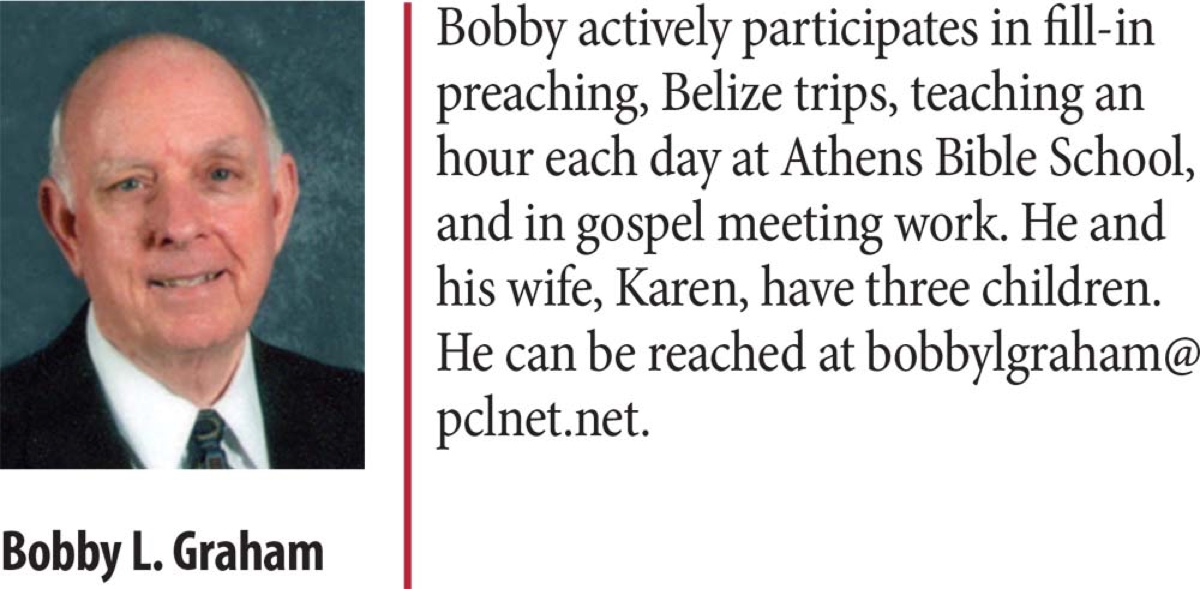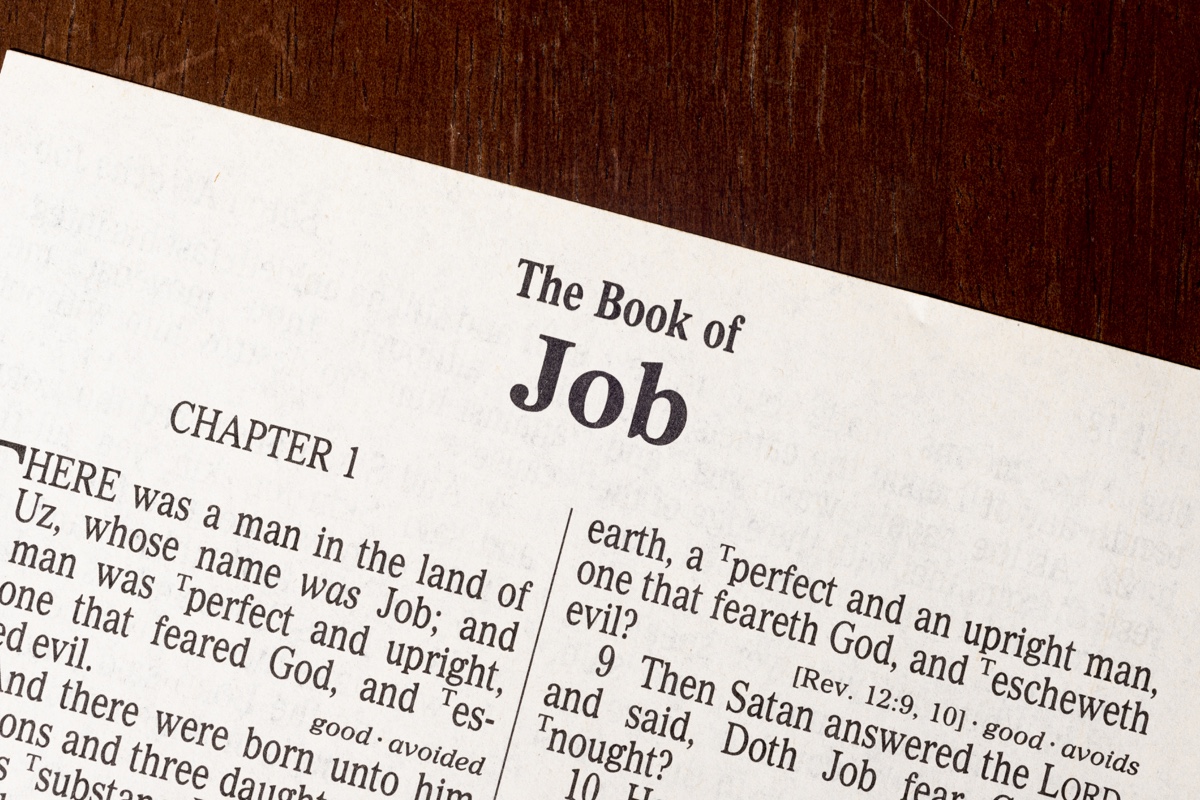
by Bobby L. Graham
The book of Job ends by saying that the Lord blessed the latter days of the patriarch, not only with material wealth, but also with seven sons and three daughters (Job 42:10–17, esp. v. 13). If someone affirms that Job had these children by another wife because of what his wife said in 2:9, how should I respond?
The Bible is a complete revelation of the mind of God to man, focusing on the redemption of humanity undertaken by Jesus the Messiah (2 Tim. 3:16-17). On the other hand, the Lord does not always give us all information about which we wonder (Deut. 29:29).
We do not know exactly when Job lived, nor do we know how long his afflictions continued. There are other questions raised about him which the Lord does not address in the book bearing his name. We simply do not know whether Job married another wife, by whom God blessed him with the seven sons and three daughters, after his afflictions ended (Job 42:13).
Perhaps this is a good time to deal with the conclusions or inferences drawn by people from Bible statements. Inferences can be necessary or unnecessary. The former are justified because they are required by the available information, while the latter are unjustified, depending on insufficient information—that is, an assumption or supposition.
The Bible does not provide enough information to affirm that Job had a second wife. We know that his first wife was anything but a helper suitable for him, encouraging and strengthening him. She even urged him to renounce God and die (Job 2:9). Job denounced her as one of the foolish women in the following verse. Besides not being the wife that Job needed (at least during the time of his deepest distress), she also would likely have been “old and worn out,” according to some commentators.
Gleason L. Archer, Jr. said of this situation when Job had an additional ten children at the end of the book:
Who could have mothered all these children? Presumably not Job’s first wife, who must have been worn out after bearing her husband the first ten children. Nor is it likely that she and Job even reconciled after her renunciation of the Lord in 2:9, and Job’s rebuke of her as a “foolish woman.” We may safely assume that Job obtained a new and younger wife, with whom he enjoyed a happy and peaceful life (The Book of Job, 115-116).
At least Archer admitted his assuming what he did, but many do not act so honestly. Their unnecessary inferences rest upon assumption, which they do not acknowledge. Admission of such by Archer, however, does not remove supposition as his basis for drawing his conclusion. We do not know that Job and his first wife parted ways. We also do not know that she was unable to bear additional children, though the human condition might tend in that direction. When God brought special blessings upon Job, could he not also have blessed Job’s wife with the ability to bear the children later in life? No, I am not affirming that He did this; but we do not know enough to infer or conclude that another wife entered the picture of Job’s life.
I know of no evidence in the book of Job showing that Job had any other wife. I believe that his first and only wife was the mother of all of his children. Of course, she would have been older; but that would have been no obstacle when God was intending to bless Job. In the absence of better evidence, I have to conclude that Job’s first wife remained with him and later bore these additional children. To do otherwise would be to draw an unnecessary inference.
Archer, Gleason L. Jr. The Book of Job: God’s Answer to the Problem of Undeserved Suffering. Grand Rapids, MI: Baker Book House, 1983.


